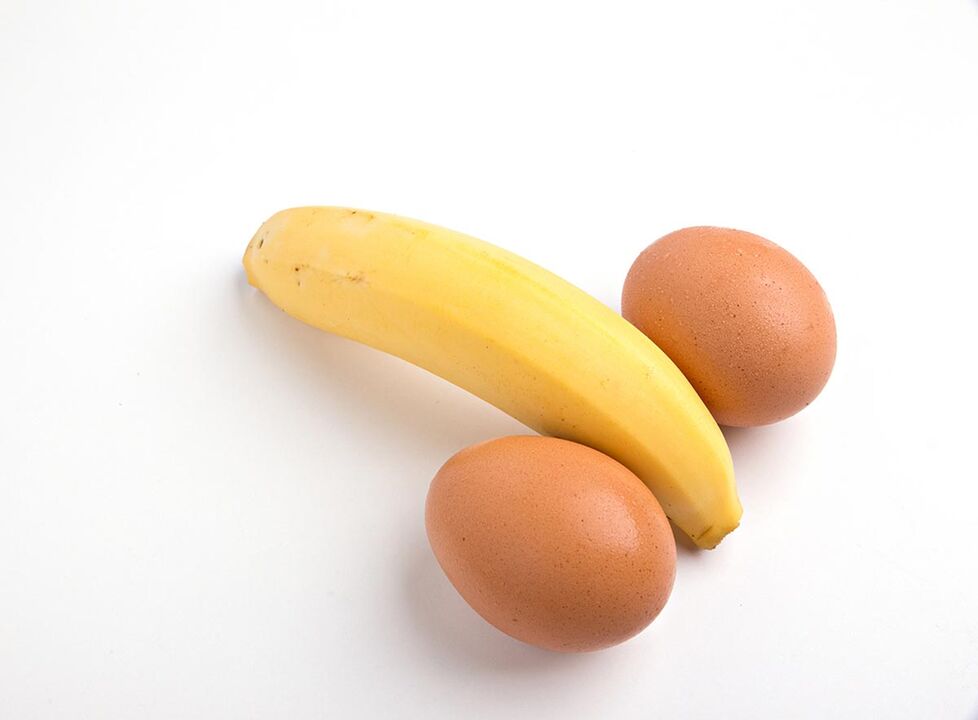
The basic list of foods to boost strength includes seafood, seeds and nuts - they contain iodine and zinc, which are important for the production of testosterone and other male hormones. If these products are not included in your diet, strength may decrease.
In addition, foods that reduce strength are sources of trans fats (chips, fast foods), fast carbohydrates (soda with sugar) and excess amounts of saturated fats (fatty meats). Each of these products impairs power through a unique mechanism of metabolic disorders.
Impact of products on power

Many foods we eat every day are capable of increasing or decreasing sexual potency and libido. The reason is simple - the balance of nutrients and the presence of harmful chemical compounds (for example, trans fats) in the product.
Habits also ultimately affect the quality of the erection. For example, smoking reduces the elasticity of blood vessels - including the vessels of the penis. Not to mention that regular alcohol consumption also lowers testosterone levels, impairing strength.
How to increase power
Strength training is one of the easiest ways to increase the production of testosterone and other male sex hormones - which definitely increases strength. Not to mention, a muscular and athletic figure will greatly increase your sexual attraction.
The good news is that the diet required for muscle growth has a positive effect on hormonal levels, and eventually leads to increased libido. In addition, meat products contain zinc and iron, which are key nutrients for strength.
Healthy erection
For many men, health is primarily a healthy potency. Unfortunately, losing it is not that difficult, especially if you neglect the simple things. 20 power harmful foods to avoid.
- Market-produced beef, chicken and pork contain significant amounts of hormones that are added to animal foods to accelerate weight gain. When consuming a large amount of such meat, the hormonal background changes.
- The most sophisticated blow to male power is beer. In addition to alcohol, it contains phytoestrogens - female sex hormones. A man's beer belly is an indicator of the occurrence of obesity in women.
- Even the weakest drug, marijuana lowers blood testosterone levels and disrupts the coordinated release of hormones. In addition, marijuana damages chromosomes, thus causing genetic mutations.
- Most often, erectile dysfunction occurs after taking antidepressant medication. With long-term use, these drugs can cause changes in the motor centers of the brain and lead to the development of parkinsonism.
- The main pathological effect of nicotine is the constant spasm (i. e. narrowing) of small-caliber vessels, including those that supply blood to the penis. In addition, atherosclerosis develops from smoking, which leads to blockage of blood vessels.
- Transgenic fats found in junk food, margarine and even ice cream cause gene mutations and hormonal changes. Most importantly, they lower testosterone levels.
- Research shows that of the 200 most common drugs, 16 are capable of causing impotence. The list included medicines used for hypertension, antispasmodics, sedatives, sleeping pills and medicines for stomach ulcers.
- Caffeine destroys free testosterone, which eventually increases female hormone levels. On the other hand, caffeine does not last that long and is quickly eliminated from the body.
- The main reason for the violation of the quality of the erection against the background of alcohol consumption is a violation of liver function and, as a result, a violation of the exchange of male hormones, on which normal sexual function depends.
- The body produces testosterone, growth hormone and other essential hormones during sleep. Therefore, its absence negatively affects both immunity and the maintenance of male strength.
- Baked and baked goods contain several foods that lower testosterone levels: acids, yeast and sugar. On the other hand, this does not apply to black and unleavened white bread.
- The body receives a high concentration of anabolic steroids in the blood for an increased testosterone content. As a result, the production of its own male sex hormones is inhibited and the testicles left idle are reduced in size.
- Numerous studies have convincingly shown that in those who climb into the saddle and pedal diligently, the blood vessels that go to the penis are constricted and the blood supply to the pelvic organs is interrupted.
- On the one hand, the body needs cholesterol to produce testosterone, but, on the other hand, its excess leads to vascular blockage. Including the vessels of the penis, which significantly damage the erection.
- Sausage and various smoked meats contain liquid smoke. When swallowed, it causes toxic damage to testicular tissue - the glands that produce 95% of testosterone in the body.
- High blood sugar is one of the main risk factors for impotence. Glucose molecules inhibit the work of nerve endings, which negatively affects the erection. A safe dose of sugar is not more than 50 g per day.
- Natural fat milk contains natural bovine estrogen. Therefore, milk in large quantities is good for children and women, and not for men. Quantity also plays a major role here. Milk is safe up to one liter per day.
- It has been experimentally proven that increased sodium content reduces testosterone production. Salt is naturally needed to regulate the water balance in the body. But everything needs a measure. It is not the salt that is harmful, but its excess.
- With obesity, hormonal balance is significantly disrupted, testosterone production decreases and blood glucose levels rise. Secondary sexual characteristics become less pronounced, there are problems with erection.
- Soy contains phytoestrogens - plant analogues of the female sex hormone. In small quantities it is harmless, but it is not suitable as a complete meat substitute, as it inhibits the production of male sex hormones.
















































































